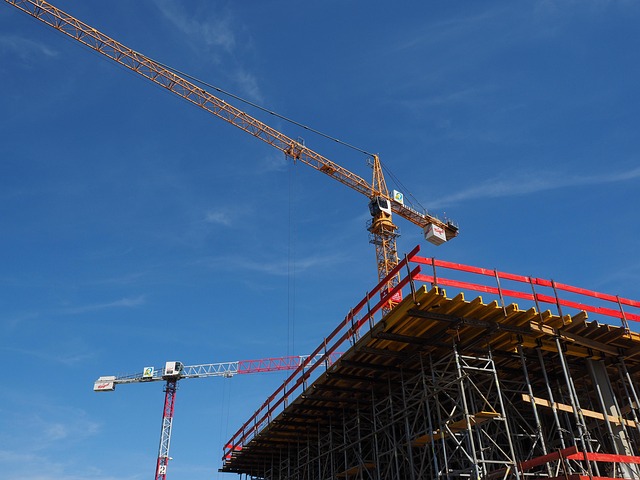Construction lending in Colorado is a vital driver of economic growth, supporting projects from residential to commercial developments with specialized loans and flexible terms. Lenders like banks and credit unions cater to the state's robust building sector by offering competitive rates and structured funding for different construction stages, while managing risks associated with the industry's volatility. This process transforms plans into reality, fuels infrastructure development, and contributes to Colorado's overall economic prosperity.
“Unleash your understanding of construction lending in Colorado with this comprehensive guide. We explore the intricate world of construction finance, highlighting its significance and unique dynamics within the state’s industry. From defining construction lending to delving into regulatory compliance, this article equips readers with essential knowledge.
Learn a step-by-step approach to financial analysis for construction projects, covering risk assessment, modeling, collateral evaluation, and more. Discover how to navigate Colorado’s specific considerations, ensuring informed decisions in one of the country’s vibrant construction landscapes.”
- Understanding Construction Lending in Colorado
- – Definition and significance of construction lending
Understanding Construction Lending in Colorado

Construction lending in Colorado plays a pivotal role in shaping the state’s robust building and infrastructure sectors. This type of financing is designed to support various construction projects, from residential developments to commercial buildings and public works. Lenders in Colorado offer specialized construction loans that cater to the unique needs of builders, contractors, and developers. These loans are structured to fund different stages of a project, ensuring smooth progression from initial planning to final completion.
Understanding construction lending involves grasping key aspects such as loan types (e.g., conventional, jumbo, or government-backed), interest rates, and repayment terms tailored to construction projects’ temporal dynamics. Colorado’s favorable business environment and robust construction industry make it an attractive market for construction lenders, who can offer competitive rates and flexible terms while mitigating risks associated with the volatile nature of construction projects.
– Definition and significance of construction lending

Construction lending in Colorado plays a pivotal role in shaping the state’s economic landscape and driving its infrastructure development. It refers to the financial support provided by lenders, such as banks and credit unions, to fund construction projects, including residential buildings, commercial properties, and public works. This process involves extending loans to contractors, developers, and builders for project initiation, ongoing operations, and completion.
The significance of construction lending cannot be overstated, especially in a state like Colorado with its thriving real estate market and diverse range of construction activities. It facilitates the transformation of blueprints into tangible structures, contributing to urban growth, community development, and economic prosperity. Lenders assess project feasibility, evaluate risks, and provide financing options tailored to meet the unique needs of each construction endeavor, ensuring efficient and effective progression from conception to completion.
Comprehensive financial analysis reveals that construction lending in Colorado is a vital component of the state’s economic landscape, driving growth and development. Understanding the nuances of this sector is key to navigating the dynamic financial environment of Colorado. By embracing robust construction lending practices, the state can continue to foster a thriving economy, ensuring a bright future for both developers and residents alike. This insightful exploration underlines the significance of informed decision-making in the realm of construction lending Colorado.
